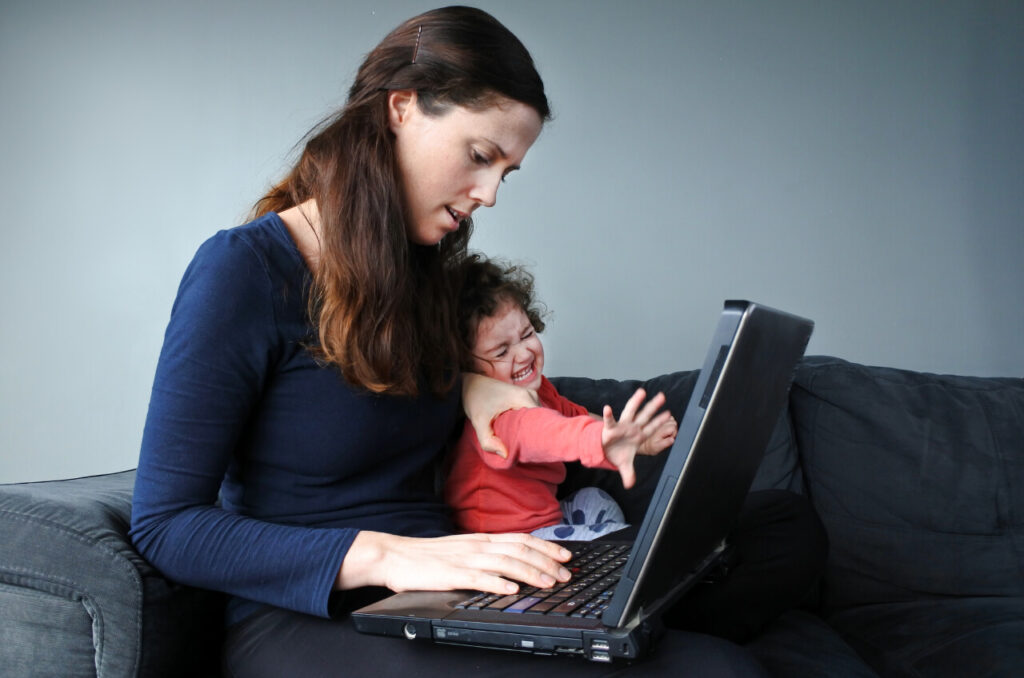If you are a working parent, or especially a working mother, struggling during the Covid-19 crisis, you are not alone. One of the biggest challenges of this pandemic is balancing childcare and homeschooling responsibilities with work.
According to a recent study by Mckinsey & Company, almost half of employees say that during the past few months, they have felt stressed at work, and about a third admit they feel exhausted or burned out. For working mothers in particular, these feelings might be heightened.
This post will focus on the current state of motherhood and professional development in the time of coronavirus, and explore why some mothers are experiencing more challenges than others.
Women and Workforce Development Challenges
Under Pressure: The consistent pressure from key stakeholders has only risen during the pandemic and is driving many working moms to consider downshifting their careers or leaving the workforce altogether. Here is a list of factors that predict whether an employee considers downshifting or leaving:
- Lack of flexibility at work
- Feeling like they need to be “always-on” or available to work at all times
- Housework and caregiving struggles due to Covid-19
- Stress that their performance is being judged because of caregiving responsibilities
- Fear of sharing their challenges to coworkers or essential stakeholders
- Feeling like their personal lives are not taken into consideration
Studies have shown certain challenges are more likely to push women out of the workforce than men due to deeply ingrained, societal expectations.
Even before the pandemic, women have been judged for putting their maternal responsibilities before their professional ones. For example, researchers sampled a group of 200 working men and women in both the UK and the US and found that women are viewed “less favorably” in the workplace when they have a new baby in their lives, even if they already had set maternity leave plans.
The WeThink Learning Development Blog allows Us to Learn from One Another
Single Mothers: 76% of mothers with children under age 10 say childcare is one of their top three challenges during Covid-19, compared to 54% of fathers with young children.
Although the trend of the “stay at home dad” is on the rise, mothers are still more likely than fathers to be responsible for most of the housework and caregiving.
Mothers are 1.5 times more likely than fathers to be spending an extra three or more hours a day on housework and childcare. This adds up to 20 hours a week, which equates to a part-time job. But what about the 1 in 5 mothers who don’t live with a spouse or partner? For them, the challenges are even greater.
Single mothers are much more likely than other parents to be responsible for all of the housework and childcare in their home. Financial insecurity is also considered to be a top concern among single mothers, especially during the pandemic.
Black and Latina Mothers: 40% of mothers are the primary breadwinners for their household, according to the Center for American Progress. But it is important to note that we must look at this statistic from an intersectional point of view. What about Black and Latina mothers?
Black mothers are twice as likely as white mothers to be their family’s primary breadwinner, which means they feel a lot more pressure to perform during the pandemic and provide for their children.
It’s also possible that Black and Latina’s mothers are burdened with more work at home. Latina mothers are 1.6 times more likely than white mothers to be responsible for all childcare and housework, and Black mothers are twice as likely to be taking care of these matters for their family.
Which Learning Philosophy Works?
Luckily, many companies have taken steps to help their employees work through the Covid-19 crisis, such as implementing more team-bonding exercises and providing more outlet for communication. However, few companies have taken on the difficult task of addressing the root causes of employee burnout and stress.
Less than a third of companies have adjusted their performance review criteria to deal with pandemic-related challenges, such as severe stress or caregiving struggles. Many employees are left wanting for transparency as companies refuse to update workers on their plans for performance reviews or their employee productivity expectations during Covid-19.
This miscommunication means many employees, particularly parents and caregivers, are having to choose between staying constantly connected with pre-pandemic work expectations, and pushing themselves to keep up with professional development at an impossible pace.
Making Connections through WeLearn’s Learning Development Blog
Mothers are dealing with heavy demands both at home and in the workplace. Many mothers are left feeling exhausted and unable to put their best foot forward. What’s important to remember is that we can get through this difficult time together.
If you are a working parent, what have been some of the challenges you’ve faced during the pandemic? Have you found any coping mechanisms or new learning philosophies that have helped you get through this time? Share your thoughts with us at WeLearn’s Learning Development Blog, because together, we learn.

